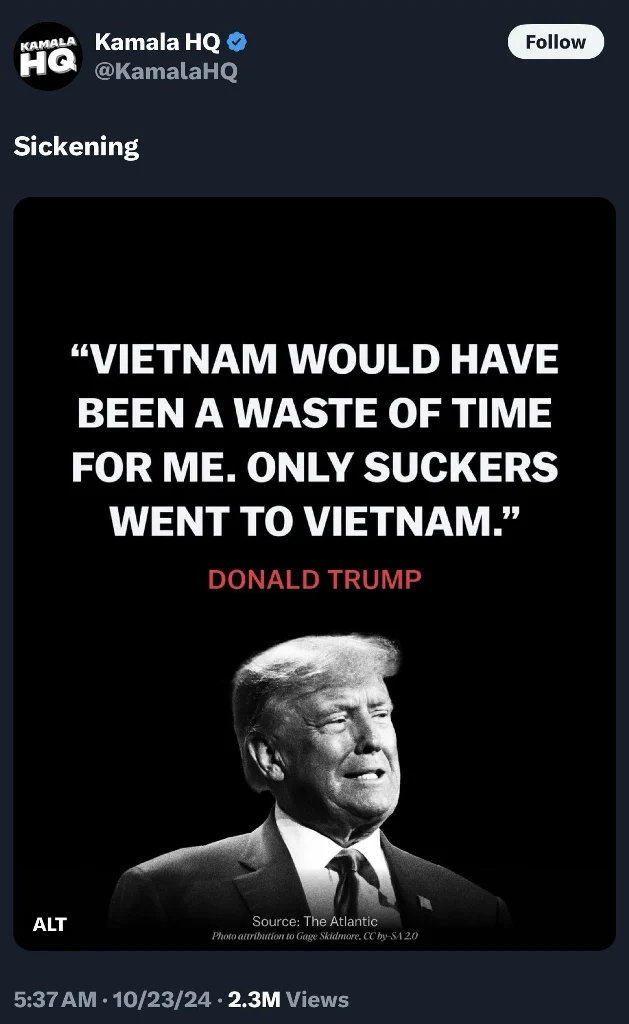Why are so many Pro-Palestine (I am pro-Palestine and anti-genocide) Americans refusing to vote for Harris due to her stance on Israel?
Why are so many Pro-Palestine (I am pro-Palestine and anti-genocide) Americans refusing to vote for Harris due to her stance on Israel?
As the title states I am confused on this matter. The way I see it, the USA has a two party system and in the next few weeks they’re either going to have Trump or Harris as president, come inauguration day. With this in mind doesn’t it make sense to vote for the person least likely to escalate the situation even more.
Giving your vote to an independent or worse not voting at all, just gives more of a chance for Trump to win the election and then who knows what crazy stuff he will allow, or encourage, Israel to get away with.
I really don’t get the logic. As sure nobody wants to vote for a party allowing these heinous crimes to be committed, but given you’re getting one of them shouldn’t you be voting for the one that will be the least horrible of the two.
Please don’t come at me with pro-Israeli rhetoric as this isn’t the post for that, I’m asking about why people would make such choices and I’m not up for debate on the Middle East, on this post, you can DM me for that.
Edit: Bedtime here now so will respond to incoming comments in the morning, love starting the day with an inbox full 😊.
Edit 2: This blew up, it’s a little overwhelming right now but I do intent on replying to everybody that took the time to comment. Just need to get in the right headspace.




